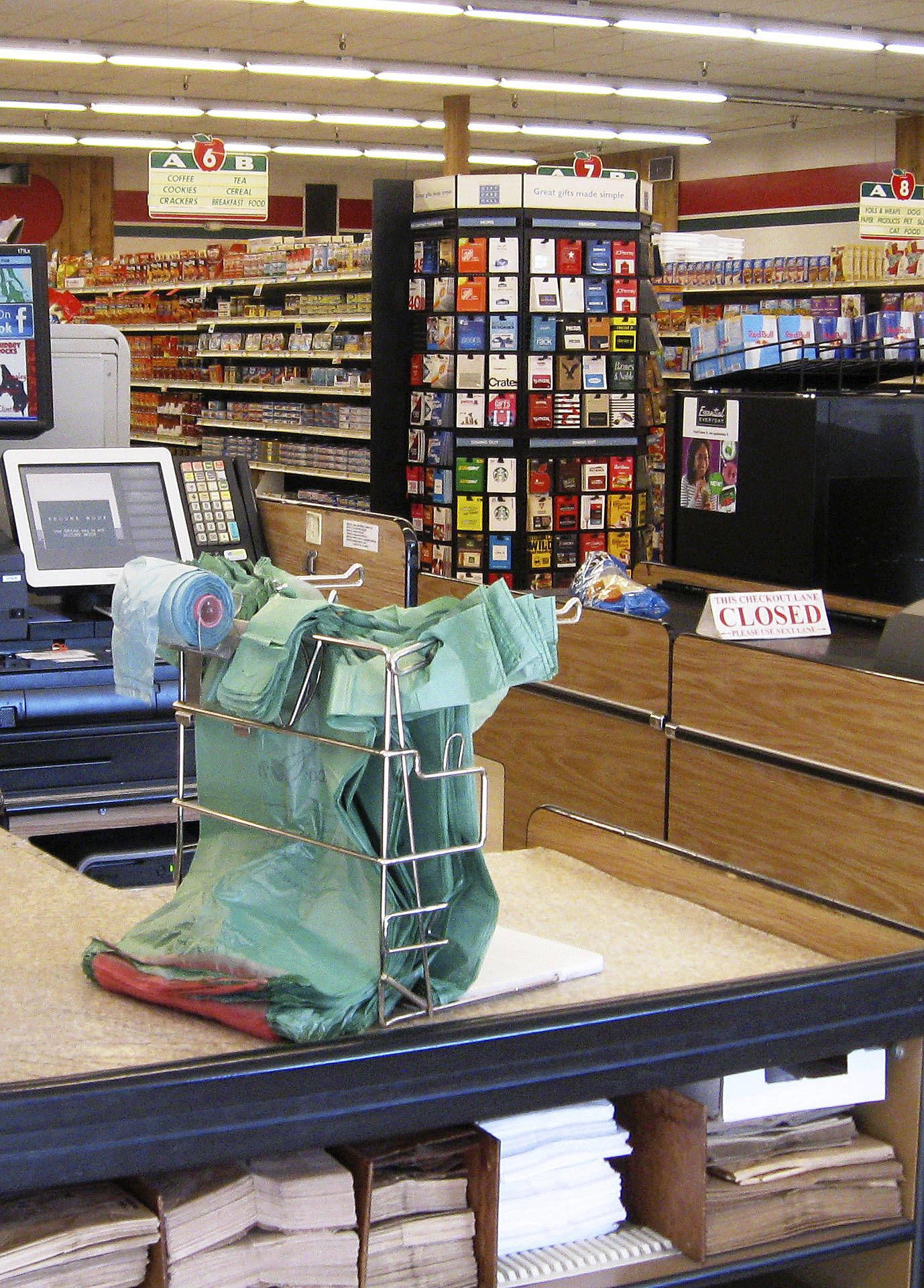While there is support for a statewide ban on plastic shopping bags to reduce pollution, at least one Whidbey legislator sees a hidden tax, and consumers may wonder about getting along without the ubiquitous product. Island retailers, meanwhile, await final details.
House Bill 1205 and Senate Bill 5323 would ban thin plastic shopping bags for all of Washington’s 7.6 million residents.
Smaller packaging bags, such as those for produce and newspapers, would be exempt.
As written, the legislation would require merchants to charge a cost-recovery fee of 10 cents at the point of purchase for a paper bag or durable and reusable plastic bag.
“A statewide standard and cost recovery process would take the pressure off smaller retailers,” said Gene Felton, owner of Langley’s Star Market.
“I support the concept, even though paper is more expensive. It’s reasonable to encourage people to reuse and recycle. We’re not going to lose customers if all the stores are eliminating plastic bags.”
Star Market in Langley, along with many other Whidbey retailers, already provides both paper and plastic bags at the point-of-sale.
Sen. Barbara Bailey, R-Oak Harbor, said she doesn’t believe the cost recovery fee is the same as buying a bag.
“The impact on Whidbey Island is essentially a 10-cent tax on consumers,” Bailey said. “The proposal before the legislature is more about talking points than actually addressing a problem in a scientifically-grounded way.”
Goose Community Grocer, in Bayview, uses only paper bags.
“Paper is more expensive, slower, and bulkier,” said Goose Director Harrison Casteel. “Most of our customers don’t seem to mind. Many of our customers also bring their own reusable bags. It’s important for all of us as consumers to be dedicated to the concept of reuse and recycling.”
Rep. Dave Paul, D-Oak Harbor, said he likes the idea of encouraging reuse and restricting single-use plastic bags.
“Plastic bags are one of the most common items found in coastal clean-ups. They create problems for recycling and commercial composters, and significantly contribute to the amount of waste in landfills.”
Paul said response from constituents to restricting plastic bags is generally positive.
Paul said hethinks a state standard is needed.
There are now laws addressing plastic bags in 27 localities, including San Juan and Thurston counties.
“A uniform rule is important so businesses don’t have to observe different regulations. The way the fee is structured will help offset costs so our local businesses don’t have a cost burden from the change.”
If the legislation is enacted, Washington state would follow California as the second state with a prohibition.
Hawai’i has a de facto statewide ban with county ordinances in the five major islands.
“Banning plastic bags might upset a lot of our customers,” said Mary Ann Turnbull, assistant manager at Clinton Foodmart. “We offer a choice of paper or plastic, and the majority wants plastic.”
“We cater to many elderly customers and the plastic bags are easier to carry, especially for someone who is walking,” she said.
A few miles north, on State Highway 525, the story is slightly different at the Ken’s Korner Red Apple store.
“Banning plastic bags wouldn’t make much difference; we really haven’t discussed it,” said Assistant Manager Christina Hernandez. “We’ve consistently offered a choice of paper or plastic. For those who express a preference, the difference is about 50-50.”
“We need a good transition and education period,” said Kyle Saar, General Manager of Saar’s Marketplace in Oak Harbor. “Any change will affect our costs, more or less, so we’re waiting to see how the final bill is written.”
According to Saar, many of his customers bring their own bags.
“Plastic shopping bags are just trash and shouldn’t be manufactured,” said Aidan Rainer, manager at Island Recycling north of Freeland. The private recovery facility doesn’t collect or recycle plastic bags. “Recycling is the last step in product life; we should be concentrating on reduction and re-use.”
Bailey said the recycling ban misses a couple of important points.
“We should be good stewards of the environment, but, unfortunately, (the legislation) doesn’t address the sources of plastics in our waterways, namely countries in Asia. I think the hope is that more people will use tote bags which aren’t any friendlier to the environment than plastic bags.”
Felton said he’s not sure there is one right answer because paper bag production also uses energy and produces pollution.
The plastic bag issue, he said, has been on his mind for years, but “we’ll make it through and (a ban) isn’t going to put us out of business.”
Management of Payless Foods in Freeland emphatically declined to comment on the legislation.
“Haggen will fully support the decisions of the communities we serve, whether community by community or with a statewide decision,” said Melissa Peterson of Front End Operations for the grocer with a store in Oak Harbor.
At both the Oak Harbor store and corporate levels, Safeway-Albertson’s did not respond to multiple e-mail and telephone requests for comment.
The company has a generic statement of environmental support and legal compliance on its web site.
Kroger Co., the Cincinnati-based parent of Fred Meyer and QFC retail and grocery stores, intends to phase out plastic bags at all stores by 2025.



